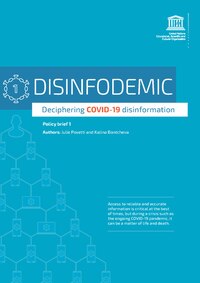
Photo from wikipedia
Social and mass media platforms (SMM) are essential tools for keeping people informed about health-promoting practices. However, the potential to spread misinformation or false rumors exists. These might influence preventive… Click to show full abstract
Social and mass media platforms (SMM) are essential tools for keeping people informed about health-promoting practices. However, the potential to spread misinformation or false rumors exists. These might influence preventive health behaviours and incite anxiety and/or fear among the population. A sample of 300 adults participated in a survey to understand information needs, fears and preventive health behaviours related to COVID-19 while analyzing differences in COVID-19 acceptance rates. Descriptive-correlational, between-group comparisons and regression analyses were applied. Most of the sample revealed a willingness to accept COVID-19 vaccines (65.4% vs. 34.5%) and was prone to use and trust different SMM without experiencing significant obstacles in managing COVID-19-related information except for the need to ration it from time to time (χ2(2, N = 298) = 6.654, p = 0.036). Preventive behaviours/measures carried out were similar among the people resistant, hesitant or willing to get vaccinated for COVID-19. However, higher self-efficacy was observed in resistant vaccine individuals (F(2) = 3.163, p = 0.044). Psychological impact (need for psychological support due to COVID-19 situation) in accepting (F(5, 189) = 17.539, p < 0.001, R2 = 0.317) and hesitant individuals (F(5, 77) = 17.080, p < 0.001, R2 = 0.526) was explained by female gender, younger age, threat susceptibility and differential characteristics in terms of psychological symptoms experienced and SMM trust. No explanatory model was obtained for the resistant individuals. SMM could be effective tools to promote COVID-19 health preventive behaviours. However, psychographic characteristics might modulate information-seeking and management as well as self-perceived threat susceptibility and severity. All these factors must be accurately considered when designing different health preventive campaigns for the general public.
Journal Title: International Journal of Environmental Research and Public Health
Year Published: 2022
Link to full text (if available)
Share on Social Media: Sign Up to like & get
recommendations!